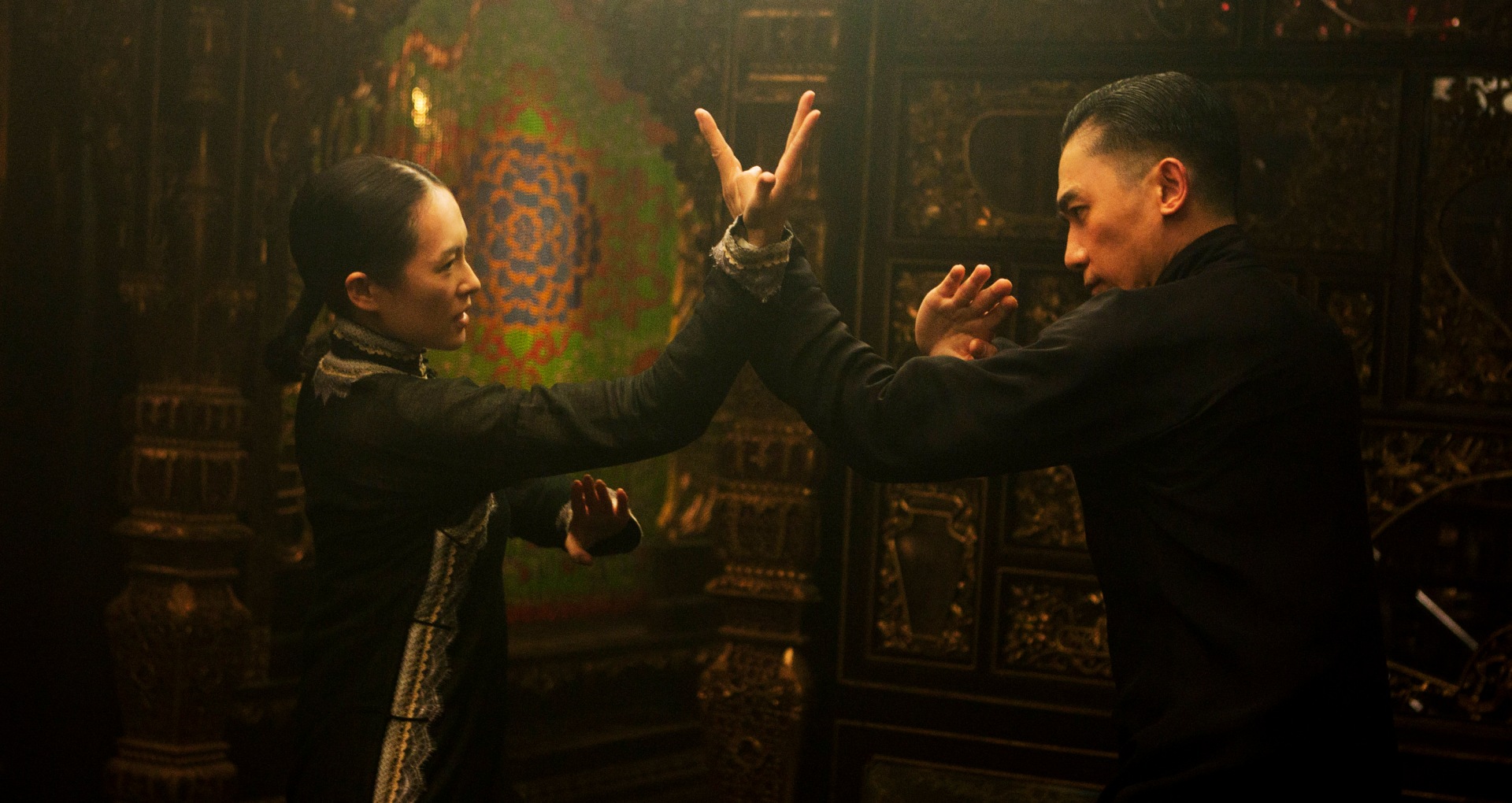Why you can trust GamesRadar+
IN THE MOOD FOR A FIGHT
In one corner stands US movie distribution heavyweight Harvey Weinstein, all brute force and deadly chopping power. In the other waits Hong Kong’s melancholy magician Wong Kar-wai, In The Mood For Love’s auteur, all watchful elegance and insinuating grace… Weinstein’s reputation for cutting art films pre-release (see also Bong Joon-ho’s Snowpiercer) drew rage from movie-lovers when he requested cuts to Wong’s long-cherished biopic of legendary wing chun grandmaster Ip Man. But it would take more than big, bad Harv to bust the back of Wong, whose meditative comeback is a triumph of expressive style – style as depth – over blunt-tool bluster.
Despite outside interference, The Grandmaster is clearly Wong’s doing. Want to see the 130-minute version? Us too, but Wong’s tendency to ‘find’ his fragmented-by- design films in the edit lends itself to multiple cuts anyway: and he executed the cuts himself. Wong made kung-fu pic clichés his own in 1994’s Ashes Of Time and does so again here, favouring philosophical musings - on ageing, history, love, the contrast between horizontal/vertical – over physical rucks.
Wong regular Tony Leung magnetises as Ip Man, who trained Bruce Lee and is here introduced in the 1930s, when he bests a northern grandmaster in combat and is challenged by the man’s daughter Gong Er (Zhang Ziyi). Zhang is Wong’s other lethal weapon: her fight with Leung is a breathtaking exchange of deadly intimacies in a tale that tingles with the erotic charge between the two, even as war and Ip Man’s family life separate them.

Wong’s story proceeds via emotional intuition rather than linear bullet-points. If some support characters suffer trims during the perhaps truncated war section, enough emotional and stylistic depth-charges are planted to compensate.
The opening fight is a killer character-revealing study of grace under pressure, where torrents of rain and pulverising blows fail to dislodge Leung’s dapper fedora. Later, that show-starter is matched by a dust-up between Gong Er and her dad’s hot-headed betrayer Ma San (Zhang Jin). It’s a silvery symphony of screaming trains, high stakes, hard kicks and soft snow lovingly lensed as a lush but deadly dance of motion and emotion by DoP Philippe Le Sourd. The outcome isn’t a foregone conclusion, but there is a clear victor. As Wong proves, style can sometimes kick substance’s rump.
VERDICT: Flawed but often flooring, The Grandmaster swoons with grace, feeling and elegance. With Leung and Zhang on killer form, Wong has delivered his best film in a decade.
More info
| UK theatrical release | 5 December 2014 |
| Director | Wong Kar-wai |
| Starring | "Tony Leung","Zhang Ziyi","Chang Chen","Wang Qingxiang" |
Kevin Harley is a freelance journalist with bylines at Total Film, Radio Times, The List, and others, specializing in film and music coverage. He can most commonly be found writing movie reviews and previews at GamesRadar+.



